Postpublished at 11:12 BST 4 August 2014
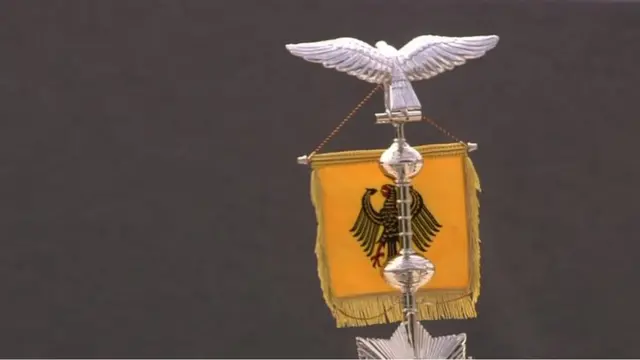
An eagle standard heralds the arrival of a German military band in Liege.
Monday 4 August 2014 marked the 100th anniversary of the start of Britain's involvement in WW1
About 17m soldiers and civilians worldwide were killed between 1914 and 1918
Royal Family members and world leaders attended commemorative events in the UK and elsewhere
An international ceremony of reconciliation was held outside the Belgian city of Mons
The day's events ended with a candle-lit vigil at Westminster Abbey and "lights out" events around the UK
Tom Moseley, Patrick Evans, Dhruti Shah, Anna Jones, Claire Bates, Nick Eardley, Kerry Alexandra, Kate McGeown and Gerry Holt

An eagle standard heralds the arrival of a German military band in Liege.
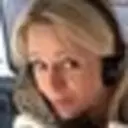 Tracy Gee
Tracy Gee
Reporter, BBC Radio Leeds, at Bramley Park, Leeds
Generations have gathered for this ceremony. One of the youngest is one-year-old William Swift who is wearing his great-granddad's medals. His great-granddad was Frederick William Brown who served in World War Two. Some of the oldest people here are in their nineties. At 11:00 a two-minute silence was held.
 Tracy Gee
Tracy Gee
Reporter, BBC Radio Leeds, at Bramley Park, Leeds
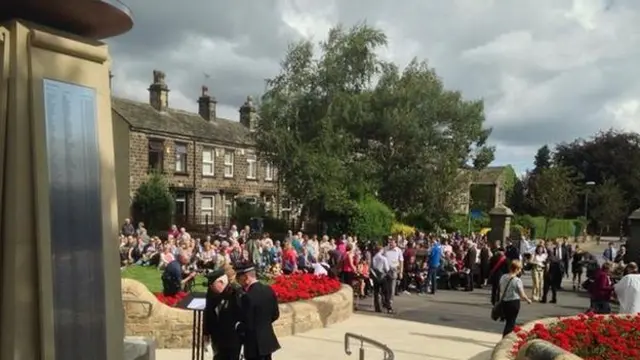
Hundreds of people have gathered at Bramley Park, Leeds, for the official unveiling of a new war memorial. It's the only one in the UK to be unveiled exactly 100 years since the start of World War One. There are 500 names on the memorial - and each name was read out. Many onlookers were teary eyed and emotional as they heard the names of those who lost their lives.
More now on Prince William's speech in Liege. He told attendees: "The fact that the presidents of Germany and Austria are here today and that other nations, then enemies, are here too bears testimony to the power of reconciliation. Not only is war between us unthinkable, but former adversaries have worked together for three generations to spread and entrench democracy, prosperity and the rule of law across Europe, and to promote our shared values around the world. We were enemies more than once in the last century. Today we are friends and allies. We salute those who died to give us our freedom. We will remember them."
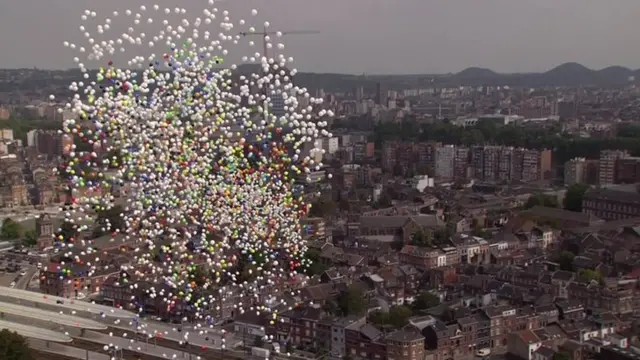
Thousands of balloons are being released over Liege.
 Laura Bicker
Laura Bicker
Scotland Correspondent, BBC News
And now Glasgow's medieval Cathedral falls silent. The congregation of invited guests from across the Commonwealth all clutch a single poppy. They are told they can place the flower wherever they feel appropriate. It could be for their own family, or their own loved ones. Officers representing the armed forces across the commonwealth walk through the aisle next to a child. Some are from the Sunday school, the scouts and brownies. They hold a candle of peace and hope. An act of remembrance to be taken on by the next generation. This service had no sermon. The congregation were told there was no simple single message. Instead this was a service to recognise the extraordinary commitment from across the Commonwealth.
In Glasgow, the Duke of Rothesay (as Prince Charles is known in Scotland) will lead dignitaries to George Square for a wreath-laying ceremony. The square in the city centre, which has been a hub of activity during the Commonwealth Games but will now host a more solemn event, is home to the city's war memorial.
Wreaths are being laid in Liege by the King of Belgium to honour those who died in World War One but also acknowledging those killed in ongoing conflicts.
As the service in Glasgow draws to a close, candles are given to children by soldiers from across the Commonwealth. Members of the congregation have also been invited to take a poppy away with them to leave where they feel appropriate.
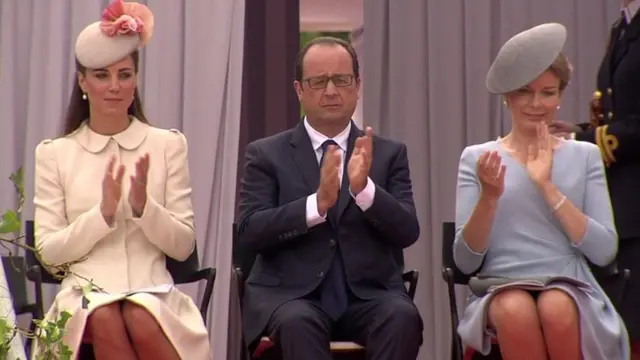
"We salute those who died to give us our freedom. We will remember them." The Duke of Cambridge is applauded by his wife, the Duchess of Cambridge, French President Francois Hollande and Queen Mathilde of Belgium after delivering the closing lines of his speech.
Christine Clark emails: Remembering my great-uncle Robin Barber who died on HMS Cressey, also my grandfather Guy Barber who survived this war but after reading his life story realised that he was on the HMS Carmania when it sunk the Germany ship Cape Trafalgar off Trinidad. His memories of the battle and what he witnessed, and what he and the others went through makes us wonder how he managed to live with the memories.
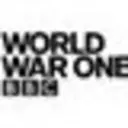 News from 1914
News from 1914
The world on the brink of war
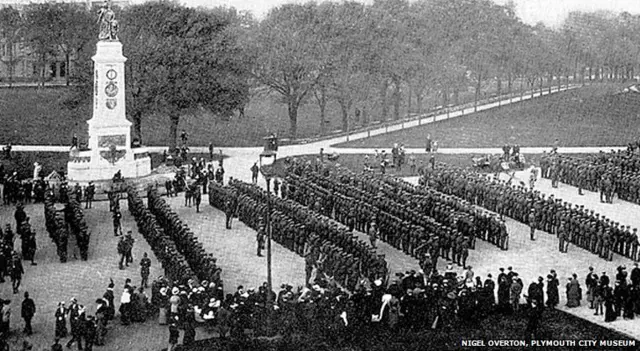 Image source, Nigel Overton, Plymouth City Museum
Image source, Nigel Overton, Plymouth City MuseumCanadian troops in Plymouth
Canadians arrive with a bear cub
In October 1914; 32 ships, 31,200 Canadian troops, over 7,000 horses and an orphaned black bear cub arrived in Plymouth. The journey had taken 12 days and it took nine days to unload all the men, animals and equipment.
The bear cub, called Winnie, spent the war in London Zoo where he was seen by A. A. Milne's son - Christopher Robin. He inspired the name for Winnie-the-Pooh.
Carole Sinclair emails: My husband lost three uncles in the First World War. Uncles not great uncles. They're all commemorated on the Stockwell War Memorial . Their name is Desaleux. I wonder how many people are only just one generation removed from that war. As these brothers were from a family of 12. I just wonder how many cousins my husband may still have that he is totally unaware of.
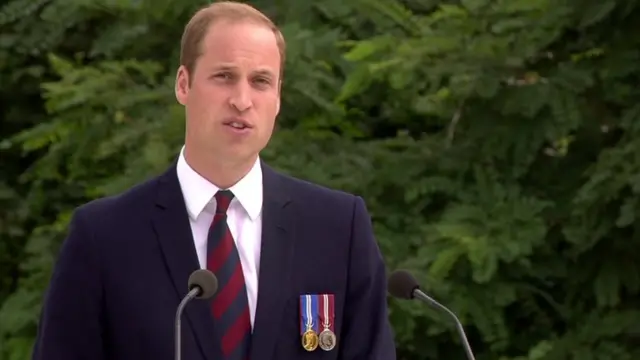
The Duke of Cambridge also spoke about the power of reconciliation: "We were enemies more than once in the last century. Today we are friends and allies."
Speaking of a visit to a war cemetery and standing before the grave of an unknown solider, Ms Fell tells the congregation: "I suddenly felt so small, so tiny. Since then, my outlook on life has never been the same." She concludes by saying she will remember the soldier forever.
School pupil Kirsten Fell is talking to Glasgow Cathedral about the graves of the many who perished during the conflict. "The graves lay silent, there was peace. Every man with a story," she says.
Imelda Flattery
BBC News
Duke of Cambridge quotes Edith Cavell, British nurse killed by firing squad during #WW1 "I must have no hatred or bitterness towards anyone"
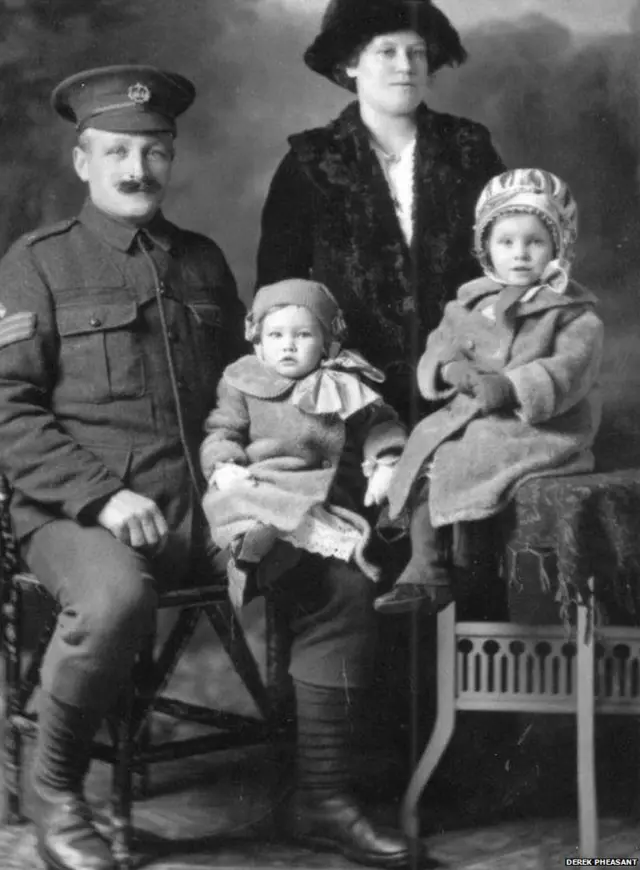 Image source, Derek Pheasant
Image source, Derek PheasantDerek Pheasant emails: Here is a picture of my granddad taken in early 1915 before he went off to fight in Gallipoli. He was a regular soldier in the Essex Regt, married my nan in West Ham in 1910 and took her back to India where his battalion was stationed. Mum, the little girl sitting on the table, was born in the garrison town of Quetta near the NW Frontier in 1912. The little boy is my uncle Arthur. Granddad was killed in action on 4th June 1915. Nan also lost her younger brother Sam Eley on 5 May 1915.
Rev Whitley, at Glasgow Cathedral, reflects on the "extraordinary courage and commitment" during the conflict, saying "we can only bow" in tribute to "a cost beyond understanding that touched countless families".
 Laura Bicker
Laura Bicker
Scotland Correspondent, BBC News, Glasgow Cathedral
The voice of Joanne Thomson from the Royal Conservatoire Scotland begins to crack as she reads an account from Helen Thomas, the wife of poet Edward Thomas.
He joined the Artists Rifles in July 1915. She wrote about their last night together.
So many wives lost their loved ones. Her account will even echo with the wives of those in the armed forces now.
"I stood at the gate watching him go...
"With leaden feet which stumbled in a sudden darkness that overwhelmed me. I groped my way back to the empty house."
Five weeks after that last night together, the poet's observation post took a direct hit.